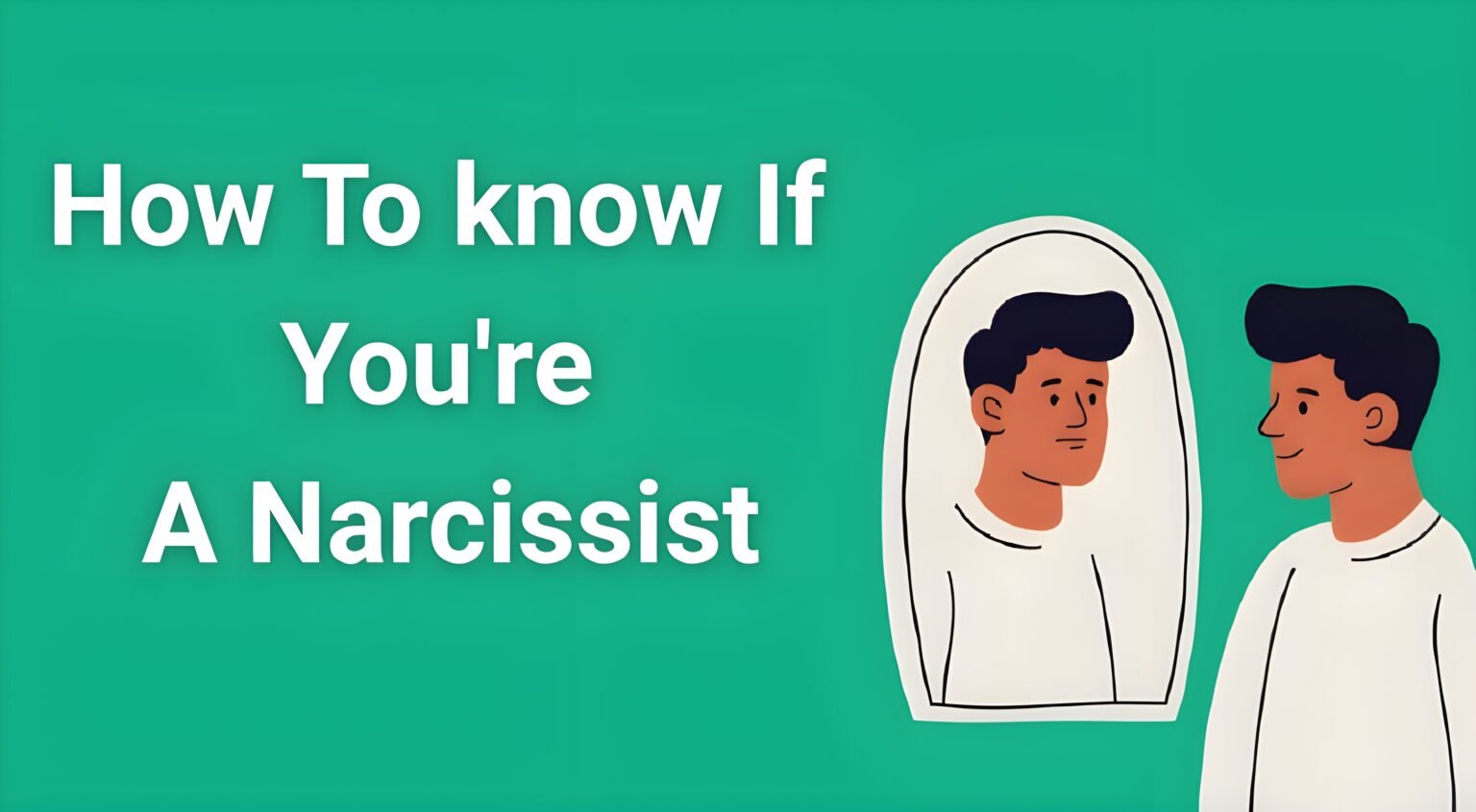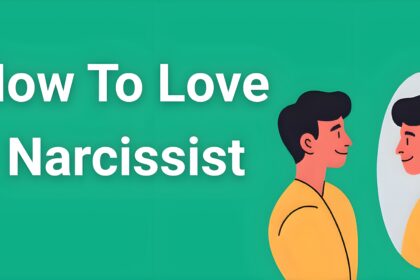The question “how to know if you’re a narcissist” has been weighing on your mind, hasn’t it? Maybe someone called you selfish during an argument, or you’ve noticed yourself dominating conversations and wondered if there’s something deeper going on. Perhaps you’re successful, confident, and used to getting your way – but lately, you’re questioning whether your behavior crosses a line.
- Understanding Narcissism: Beyond the Surface-Level Definitions
- 12 Key Signs: How to Know If You’re a Narcissist
- The Crucial Difference: Confidence vs. Narcissism
- When Your Behavior Becomes Concerning
- The Self-Reflection Process: Honest Assessment
- Breaking Free from Narcissistic Patterns
- Professional Assessment and Support
- Building Healthier Relationship Patterns
- Frequently Asked Questions
- Conclusion
Here’s something that might surprise you: The very fact that you’re asking this question suggests you’re probably not a narcissist. True narcissists rarely engage in this kind of self-reflection. However, understanding the difference between healthy confidence and problematic narcissistic behavior is crucial for your relationships and personal growth.
In this comprehensive guide, we’ll explore the clear distinctions between normal self-assurance and narcissistic personality traits, provide you with a practical self-assessment framework, and help you understand when confidence becomes concerning.
Understanding Narcissism: Beyond the Surface-Level Definitions
Before diving into how to know if you’re a narcissist, it’s essential to understand what narcissism actually means in psychological terms. The word gets thrown around casually, but clinical narcissism is far more complex than simply being self-centered or posting too many selfies.
Narcissistic Personality Disorder (NPD) is a legitimate mental health condition characterized by a pervasive pattern of grandiosity, need for admiration, and lack of empathy. According to the Diagnostic and Statistical Manual of Mental Disorders (DSM-5), NPD affects approximately 1% of the population, with higher rates in men than women.
However, narcissistic traits exist on a spectrum. You can exhibit some narcissistic behaviors without having full-blown NPD. Understanding this spectrum is key to honest self-assessment.
The Narcissism Spectrum: Where Do You Fall?
Think of narcissism as existing on a continuum from healthy self-regard to pathological self-obsession:
Healthy Self-Confidence: You value yourself, celebrate achievements, and maintain good boundaries while remaining empathetic to others.
Narcissistic Traits: You occasionally prioritize your needs above others’, struggle with criticism, or seek excessive validation, but you can recognize these patterns and adjust.
Narcissistic Personality Disorder: Your behavior consistently lacks empathy, exploits relationships, and causes significant distress in your personal and professional life.
12 Key Signs: How to Know If You’re a Narcissist
Let’s examine the core behaviors that distinguish narcissistic patterns from normal human behavior. As you read through these signs, honestly assess how often these apply to you across different relationships and situations.
1. Grandiose Sense of Self-Importance
Narcissistic behavior: You consistently exaggerate your achievements, talents, or importance. You believe you’re uniquely special and deserving of recognition, even when evidence doesn’t support these beliefs.
Normal confidence: You acknowledge your strengths and accomplishments accurately while recognizing your limitations and others’ contributions.
Self-reflection question: Do you find yourself embellishing stories about your achievements or feeling genuinely superior to most people around you?
2. Preoccupation with Fantasies of Success and Power
Narcissistic behavior: You spend significant time daydreaming about unlimited success, power, brilliance, or finding the “perfect” relationship where you’re completely adored.
Normal ambition: You have goals and dreams but remain grounded in reality and work practically toward them.
Self-reflection question: Are your fantasies about success focused primarily on the admiration and power you’ll gain rather than the actual work or contribution?
3. Belief That You’re Special and Unique
Narcissistic behavior: You believe you’re so unique that you can only be understood by other “special” or high-status people. You seek out exclusive relationships and look down on those you consider “ordinary.”
Healthy self-regard: You appreciate your unique qualities while recognizing that everyone has special attributes and inherent worth.
Self-reflection question: Do you genuinely believe most people are beneath you or incapable of understanding your complexity?
4. Excessive Need for Admiration
Narcissistic behavior: You constantly seek praise and become distressed when you don’t receive the attention you feel you deserve. Your self-worth depends heavily on external validation.
Normal validation seeking: You appreciate recognition but don’t require constant praise to feel good about yourself.
Self-reflection question: How do you feel when you share good news and others don’t react with the enthusiasm you expected?
5. Sense of Entitlement
Narcissistic behavior: You expect special treatment and become angry when you don’t receive it. You believe rules don’t apply to you or should be bent in your favor.
Reasonable expectations: You understand social contracts and don’t expect preferential treatment beyond what you’ve earned.
Self-reflection question: Do you often feel frustrated that others don’t automatically recognize your importance or give you priority?
6. Exploitative Relationships
Narcissistic behavior: You use relationships primarily for what others can give you – attention, status, resources, or validation. You struggle to maintain relationships that don’t benefit you directly.
Mutual relationships: You value give-and-take in relationships and genuinely care about others’ wellbeing beyond what they provide you.
Self-reflection question: When you think about your close relationships, are you primarily focused on what you gain from them?
7. Lack of Empathy
Narcissistic behavior: You have difficulty understanding or caring about others’ feelings, especially when they conflict with your wants or needs. You might intellectually understand emotions but struggle to feel them.
Emotional intelligence: You can put yourself in others’ shoes and adjust your behavior based on their emotional needs.
Self-reflection question: When someone is upset with you, is your first instinct to understand their perspective or to defend yourself?
8. Envy and Belief Others Are Envious
Narcissistic behavior: You frequently feel envious of others’ success or possessions, and you assume others are envious of you. You may minimize others’ achievements or find ways to compete.
Healthy competition: You can celebrate others’ success without feeling diminished and don’t assume your success automatically creates envy in others.
Self-reflection question: When a friend gets a promotion or reaches a goal, what’s your immediate emotional reaction?
9. Arrogant Behaviors and Attitudes
Narcissistic behavior: You regularly display condescending behavior, interrupt others, dismiss their opinions, or act superior in social situations.
Confident communication: You express your opinions assertively while remaining open to others’ perspectives and treating them with respect.
Self-reflection question: Do people often tell you that you come across as arrogant or condescending?
10. Difficulty Handling Criticism
Narcissistic behavior: You react with intense anger, defensiveness, or withdrawal when criticized. You may retaliate against those who criticize you or dismiss their feedback entirely.
Growth mindset: While criticism might sting initially, you can process feedback objectively and use it for improvement.
Self-reflection question: How do you typically respond when someone points out a mistake you’ve made or suggests you could improve?
11. Shallow or Unstable Relationships
Narcissistic behavior: Your relationships tend to be intense but short-lived, or you maintain surface-level connections that revolve around your needs. People often describe feeling drained after spending time with you.
Deep connections: You maintain long-term relationships with mutual support, shared vulnerability, and genuine interest in others’ lives.
Self-reflection question: Do your relationships tend to fizzle out once the initial excitement wears off, or do people gradually distance themselves from you?
12. Lack of Self-Awareness
Narcissistic behavior: You struggle to recognize how your behavior affects others and rarely consider that you might be the common denominator in relationship conflicts.
Emotional intelligence: You regularly reflect on your behavior and its impact on others, making adjustments when necessary.
Self-reflection question: When relationships or friendships end badly, do you typically blame the other person entirely?
The Crucial Difference: Confidence vs. Narcissism
Understanding how to know if you’re a narcissist often comes down to distinguishing between healthy confidence and problematic narcissistic behavior. Here are the key differences:
Healthy Confidence Characteristics:
- Empathetic Success: You celebrate achievements while remaining considerate of others’ feelings
- Resilient Self-Worth: Your self-esteem remains stable even when criticized or when others succeed
- Mutual Relationships: You give and receive support equally in relationships
- Growth Orientation: You welcome feedback and use it for improvement
- Authentic Interest: You genuinely care about others’ experiences and wellbeing
Narcissistic Patterns:
- Zero-Sum Thinking: Others’ success feels like your failure
- Fragile Self-Esteem: Your confidence depends heavily on external validation and comparison
- Transactional Relationships: Connections serve primarily to boost your ego or status
- Defensive Reactions: Criticism triggers intense emotional responses and retaliation
- Surface-Level Interest: Your attention to others is primarily performative or self-serving
When Your Behavior Becomes Concerning
Recognizing problematic patterns is the first step toward positive change. Your behavior may be crossing into concerning territory if:
You consistently receive feedback about being self-centered, insensitive, or difficult to be around. Multiple people, across different relationships, have expressed similar concerns about your behavior.
Your relationships follow a pattern of intense beginnings followed by conflicts and endings, often with the other person citing your behavior as a primary issue.
You find yourself unable to maintain close friendships or romantic relationships because others feel unheard, unvalued, or manipulated.
You experience intense emotional reactions to criticism or perceived slights, leading to prolonged conflicts or cutting people out of your life.
You notice that conversations typically center around you, your achievements, or your problems, with little genuine interest in others’ experiences.
The Self-Reflection Process: Honest Assessment
True self-awareness requires looking beyond your internal experience to understand your external impact. Here’s a structured approach to honest self-assessment:
1. Pattern Recognition
Look for consistent themes across your relationships. Are the same issues coming up repeatedly? Do different people give you similar feedback about your behavior?
2. Impact vs. Intent
Consider the gap between your intentions and the actual impact of your behavior. You might intend to share excitement about an achievement, but others might experience it as bragging or one-upmanship.
3. Emotional Regulation Assessment
How do you handle situations where you’re not the center of attention? Can you genuinely celebrate others’ successes without making it about yourself?
4. Relationship Quality Evaluation
Examine the depth and longevity of your relationships. Do people stay in your life long-term? Do they feel comfortable being vulnerable with you?
5. Feedback Receptivity
Consider how you respond to constructive criticism. Do you become defensive immediately, or can you sit with uncomfortable feedback and consider its validity?
Breaking Free from Narcissistic Patterns
If your self-assessment reveals narcissistic tendencies, the good news is that awareness is the first step toward change. Unlike those with severe NPD who rarely seek help, your recognition of these patterns suggests you have the capacity for growth and change.
For individuals who recognize concerning patterns in their behavior, professional support can provide invaluable insight and practical strategies for developing healthier relationship skills. Understanding your own psychological patterns often requires an objective perspective that specialized analysis can provide.
Many people find that structured approaches to personal development, particularly those that address underlying emotional patterns and relationship dynamics, create the foundation for lasting change. When you understand the deeper psychological mechanisms driving your behavior, you can begin to make conscious choices that align with your values and relationship goals.
The journey of personal growth often involves recognizing that the intensity of your need for validation or control might stem from earlier experiences that created these protective mechanisms. Addressing these root causes, rather than just surface behaviors, creates more sustainable change in how you relate to others.
Professional Assessment and Support
While self-reflection provides valuable insights, professional evaluation offers the most accurate assessment of narcissistic tendencies. Mental health professionals use specific diagnostic criteria and objective assessment tools to distinguish between personality traits and personality disorders.
If your self-assessment reveals concerning patterns, consider seeking professional evaluation. A qualified therapist can provide:
- Objective assessment of your behavioral patterns
- Insight into the underlying causes of narcissistic traits
- Practical strategies for developing empathy and emotional regulation
- Support for building healthier relationship skills
- Treatment for any co-occurring mental health conditions
Remember, seeking help for personality-related concerns is a sign of strength and self-awareness, not weakness. Many successful people work with mental health professionals to optimize their relationship skills and emotional intelligence.
Building Healthier Relationship Patterns
Whether you’re working to address narcissistic tendencies or simply wanting to strengthen your emotional intelligence, these practices can help you develop more balanced, fulfilling relationships:
Develop Active Listening Skills
Practice giving others your full attention without planning your response or waiting for your turn to speak. Ask follow-up questions that show genuine interest in their experience.
Cultivate Empathy
When someone shares their feelings, try to understand their perspective rather than immediately relating it to your own experience. Validate their emotions even if you don’t share them.
Practice Gratitude
Regularly acknowledge others’ contributions to your success and express appreciation for their support. This helps counteract tendencies toward self-aggrandizement.
Embrace Vulnerability
Share your struggles and uncertainties with trusted friends. This creates deeper connections and helps balance relationships that might otherwise focus too heavily on your achievements.
Seek Feedback Actively
Ask trusted friends and family members for honest feedback about your behavior and its impact on them. Listen without defending or explaining.
Celebrate Others Genuinely
Make an effort to celebrate others’ successes without making it about yourself. Focus on their experience and emotions rather than how their success relates to you.
Frequently Asked Questions
Q: Can narcissists change their behavior?
A: Yes, people with narcissistic traits can develop greater self-awareness and emotional intelligence through consistent effort and often professional support. However, change requires genuine motivation and ongoing commitment to personal growth.
Q: Is it possible to be a “recovering narcissist”?
A: While personality patterns are deeply ingrained, people can learn to recognize and modify narcissistic behaviors. Recovery involves developing empathy, improving emotional regulation, and building genuine self-awareness.
Q: How do I know if my self-confidence is healthy or narcissistic?
A: Healthy confidence allows you to feel good about yourself while remaining genuinely interested in others’ wellbeing. Narcissistic confidence requires putting others down or centers primarily on comparison and superiority.
Q: What’s the difference between narcissistic traits and Narcissistic Personality Disorder? A: Narcissistic traits might appear occasionally or in specific situations, while NPD involves pervasive patterns that significantly impair relationships and functioning across multiple life areas.
Q: Should I tell someone I think they’re a narcissist?
A: Directly labeling someone as narcissistic rarely leads to positive change and often increases defensiveness. Instead, focus on specific behaviors and their impact on you or the relationship.
Q: Can trauma cause narcissistic behavior?
A: Yes, narcissistic traits can develop as protective mechanisms in response to childhood trauma, neglect, or inconsistent caregiving. Understanding these roots can be important for healing and change.
Conclusion
Learning how to know if you’re a narcissist requires honest self-reflection, willingness to hear difficult feedback, and often professional guidance. The fact that you’re asking this question suggests emotional intelligence and capacity for growth that true narcissists typically lack.
Remember that everyone exhibits some narcissistic behaviors occasionally – the key is recognizing when these patterns become problematic and impact your relationships consistently. Whether you’re dealing with narcissistic traits or simply want to improve your emotional intelligence, the path forward involves developing greater empathy, emotional regulation, and genuine interest in others’ wellbeing.
Your relationships are the mirror that reflects your emotional health. If you’ve recognized concerning patterns in this assessment, know that change is possible with commitment, support, and often professional guidance. The journey toward healthier relationships and authentic self-awareness is one of the most valuable investments you can make in your personal development.
Taking steps to understand and address these patterns now can transform not only your relationships but your overall quality of life, leading to deeper connections, greater emotional satisfaction, and the kind of genuine confidence that doesn’t require putting others down to build yourself up.






